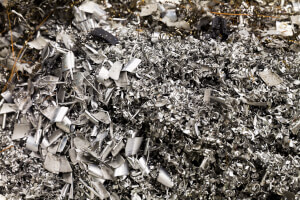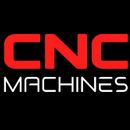Comprehensive Guide to the Hardest Materials Used in CNC Manufacturing

Comprehensive Guide to the Hardest Materials Used in CNC Manufacturing
In CNC manufacturing, knowing the hardest materials and the best machining methods for them can save time and resources. This guide breaks down materials used in CNC manufacturing from hardest to least hard, organized into four distinct hardness levels along with recommended CNC machine types and tooling considerations.
🔴 Level 1: Ultra-Hard Materials
Rockwell Hardness: 70+ HRC / Vickers: 2000+ HV
Materials at this level are primarily used in aerospace, defense, and toolmaking industries.
| Material | Approx. Hardness | Machines Required | Notes |
|---|---|---|---|
| Polycrystalline Diamond (PCD) | ~8000 HV | EDM only (not machinable with traditional CNC) | Must use Electrical Discharge Machining |
| Cubic Boron Nitride (CBN) | ~4500 HV | EDM or Grinding | Used to machine hardened steels |
| Tungsten Carbide (Sintered) | 70–92 HRC | EDM, Surface Grinder | Requires diamond wheels |
| Ceramics (Alumina, Silicon Nitride) | 70–90 HRC | Grinding, EDM, or laser cutting | Extremely brittle but wear-resistant |
Machine Types:
- Wire EDM
- Sinker EDM
- 5-Axis Surface Grinders
- Laser CNC Systems
🔶 Level 2: Hard-to-Machine Alloys
Rockwell: 45–70 HRC
Critical for aerospace, oil & gas, nuclear, and medical sectors.
| Material | Approx. Hardness | Machines Required | Notes |
|---|---|---|---|
| Inconel (Nickel Alloy) | 45–60 HRC | High-rigidity CNC Mills & Lathes | Generates heat, needs coated carbide tools |
| Hastelloy | 45–60 HRC | Same as Inconel | Resistant to chemicals and heat |
| Titanium Grade 5 (Ti-6Al-4V) | ~36–40 HRC | Rigid CNC Machines (5-axis preferred) | Needs high cutting force & coolant |
| Tool Steel (D2, A2, M2) | 50–65 HRC | Heavy-duty CNC mills, surface grinders | Often heat treated; needs slow feeds |
| Stellite (Cobalt-Chromium) | 50–55 HRC | Specialized carbide tooling | High heat resistance, used in valves |
Machine Types:
- Vertical/Horizontal Mills with box ways
- Rigid 5-Axis Mills
- High-Torque CNC Lathes
- Coolant-through Spindle Machines
🟡 Level 3: Medium-Hard Industrial Materials
Rockwell: 25–45 HRC
Common across automotive, industrial, and military work.
| Material | Approx. Hardness | Machines Required | Notes |
|---|---|---|---|
| Stainless Steel (304, 316) | ~25–35 HRC | Standard CNC Mill/Lathe with coolant | Can work-harden, needs sharp tooling |
| Carbon Steel (1045, 4140) | 28–45 HRC | Standard CNC Machines | Versatile and commonly machined |
| Bronze (High Strength Alloys) | ~30–35 HRC | CNC Lathe or Mill | Tougher than brass, lubricates tooling |
| Cast Iron | ~30 HRC | CNC Mill with rigid setup | Abrasive, causes tool wear |
| Chromoly Steel (4130, 4340) | 30–40 HRC | CNC Mills and Lathes | Heat treatable and durable |
Machine Types:
- General-purpose 3- or 4-axis CNC machines
- Horizontal CNC Lathes
- Coolant-enabled vertical mills
🟢 Level 4: Soft & Easily Machinable Metals
Rockwell: <25 HRC
Ideal for prototyping, aluminum parts, or cosmetic machining.
| Material | Approx. Hardness | Machines Required | Notes |
|---|---|---|---|
| Aluminum Alloys (6061, 7075) | 15–20 HRC | Any CNC Mill or Lathe | Fast speeds, sharp tools, no coolant needed |
| Brass | ~15 HRC | Low-end CNC Mill or Lathe | Self-lubricating and chip-free machining |
| Plastics (Delrin, Nylon, PEEK) | N/A (very soft) | Desktop CNC Routers, Low-power Mills | Low feed force, careful fixturing needed |
| Magnesium Alloys | ~20 HRC | Any CNC Machine | Very light, flammable chips — use care |
| Copper | ~20 HRC | Any CNC with good cooling | Sticky, causes built-up edge without lube |
Machine Types:
- Entry-level CNC Mills & Routers
- Benchtop CNCs
- High-speed Spindle Machines
🛠️ Tooling Considerations by Level:
| Level | Recommended Tooling |
|---|---|
| 🔴 Ultra-Hard | Diamond grinding wheels, EDM electrodes |
| 🔶 Hard Alloys | Coated Carbide (TiAlN, AlCrN), CBN inserts |
| 🟡 Medium-Hard | Carbide or HSS with proper cooling |
| 🟢 Soft | HSS, Uncoated Carbide, Single-flute for plastics |


